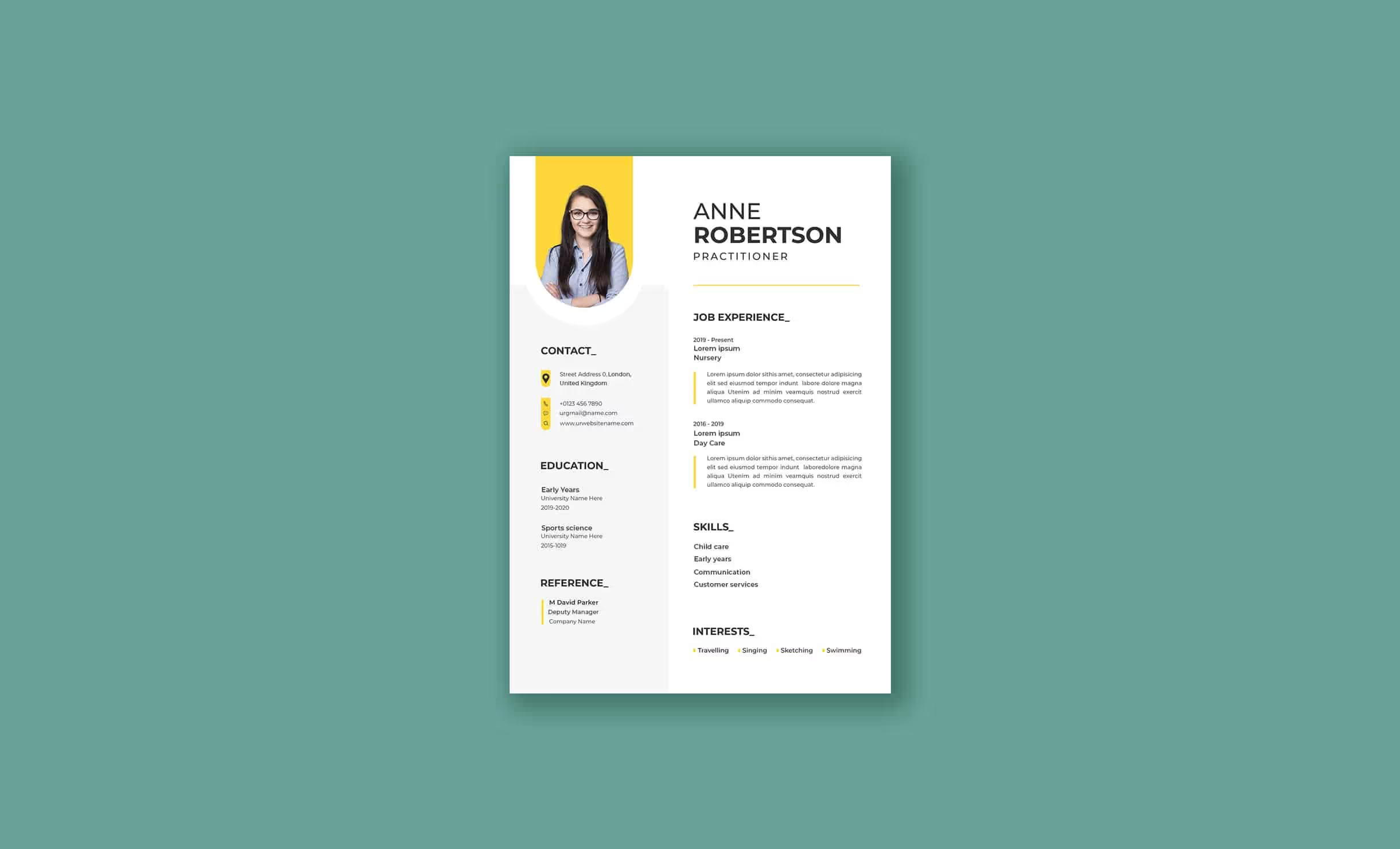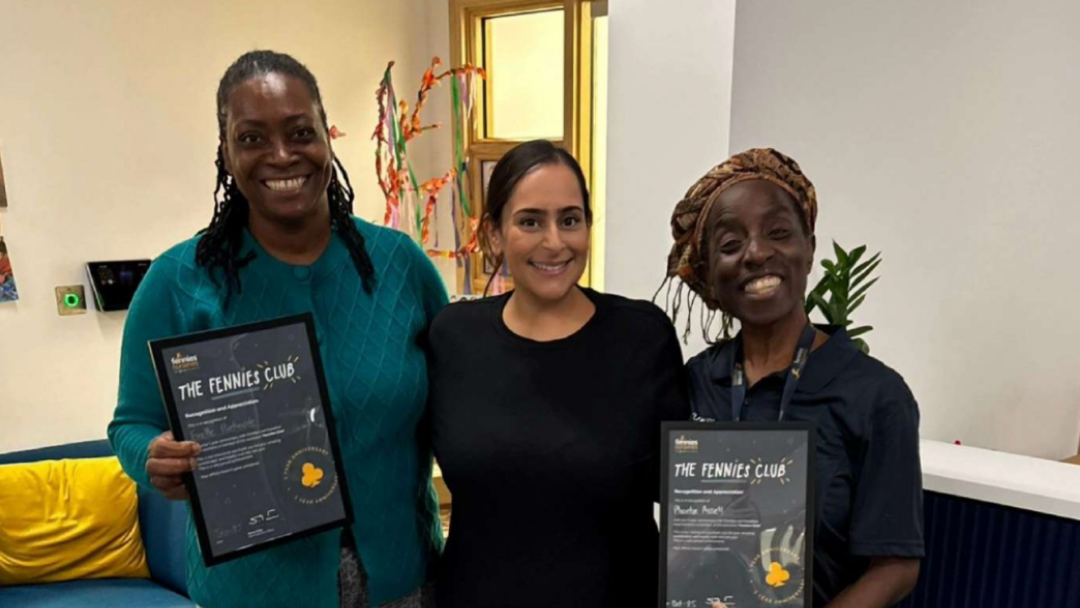Navigating numerous job boards, prepping for interviews, and polishing your CV can be a daunting task, but with tips and advice from a recruitment professional, you can confidently get started and take one step closer to your dream job! Head of Fennies Recruitment, Caroline, shares her top tips for applying for a job in early years.

Whether you’re starting out as an Apprentice or you’re already a qualified and experienced practitioner, sprucing up your CV is a must before applying to any new role.
What should I include in my CV?
Your CV is an employer’s first impression of you, and we all know how important first impressions are. Therefore your CV should be an extension of your personality, not just including those all-important qualifications and experience. Stand out from the crowd by following these steps below.
- The title of your CV should be your name and your contact information should follow, be sure to include your email, address, and phone number.
- Include your full name, email address, and phone number so that an employer can contact you about the job you’re applying for.
- Include your previous job titles and overall length of service within the specific industry.
- Highlight existing skills that will help you excel within the role you are applying for.
- Detail out your education and any qualifications you’ve achieved.

First Things First
The title of your CV should be your name and your contact information should follow, be sure to include your email, address, and phone number. A common mistake when writing a CV is titling the document with ‘curriculum vitae’ or ‘CV,’ this takes up valuable space and wastes time for the recruiter.
Contact details
Include your full name, email address, and phone number so that an employer can contact you about the job you’re applying for. Including your address or at least the town you live in is helpful so the recruiter can check how close you are to the nursery and let you know how long it would take you to get to work.
Profile and Experience
Your profile should be a short bio about yourself and a summary of your experience. Include your overall length of service within the specific industry. If you're new to the industry or don't have much experience within a nursery yet, list any relevant experience you may have such as, babysitting or looking after family members’ children.
Skills
Highlight existing skills that will help you excel within the role you are applying for. For example, if you’re highly organised, this shows that you’d have the necessary ability to plan your day well in the nursery. Creativity is another good skill to list, this shows that you would excel at creating creative learning activities for the children and communication demonstrates that you’d work well within a team. It would also be a good idea to add an example for your listed skills, keep them short and to the point!
“Ensure you tailor your CV for the role you are going for. If you want to work and build a career in Early Years, ensure that your CV states this, not that you are looking to work in a different field. Showing transferable skills from part time, full time jobs, school or college are invaluable to your CV. Think of the skills and behaviours you have gained and how these can be relevant to working in early years e.g. communicating to customers, being calm under pressure.” Oliver Hill, Head of Business & Development at HAWK Training Tweet
Education and Qualifications
In this section detail out your education and any qualifications you’ve achieved. This should include school qualifications such as GCSE, BTECs and A level grades as well as any other relevant education achievements. Be sure to include graduation dates or if the courses are still ongoing.

Personal interests
Mentioning your interests makes your CV more personal, this helps identify if you'd be a good cultural fit within the team you're applying for and also shows specific attributes that link to that interest. For example, if you enjoy a specific sport this can show determination and dedication, which is a big positive to potential employers as this will be reflected in your dedication to your job.
References
An employer will often ask for a reference from a previous employer, teacher or colleague this is simply to understand more about your skills and experience, details about the character and your strengths and weaknesses and whether you had any disciplinaries.
This information helps the nursery decide whether you are suitable for the job. Therefore, on your CV you should have contact details for references or you can simply add ‘references available upon request.’

My Top Tips
Now that we’ve covered what should be included in your CV, here’s some tips that will be helpful to bear in mind whilst building your CV.

Short and Sweet
Employers spend an average of 8 seconds reading a CV, so be clear in the points you want to get across. Your CV should be no longer than 2 A4 pages, keep it punchy and to the point, you can go into more detail in your interview. You could also bold some keywords so they stand out to the recruiter.
Tailor made
Tailor your CV so that it fits seamlessly with the job you’re applying for, look at the job description and make your CV relevant to the information provided. If you’re applying for an Apprenticeship, focus on your skills and interests that will help you excel in the role. If you have previous experience, make sure you mention everything that’s relevant to this job, showcase the skills you developed over this time and everything you achieved with exmaples.
Looking good
The design of your CV should be simple, clean and tidy. To achieve this, make sure that sentences are kept concise and clear to the reader. If you’re using colour, keep it neutral and easy on the eye as busier documents can be more difficult to read. You can also find CV templates in Word or purchase one.
Include your Achievements
Don't be shy about mentioning your achievements, big or small, you should highlight all your achievements in your CV. If you're an experienced practitioner, use the most recent achievements as examples. For those of you with less experience, don't forget to think back to school and mention any awards you may have won or any successful groups you were a part of.

Keep up to Date
Even if you’re not applying for a job, it’s a good idea to keep your CV up to date. Take time to note down your experience and achievements when they happen so you don’t forget them should you eventually apply for another role or promotion.
FAQ
Subscribe to our newsletter
Stay up to date with Fennies news







.png)


